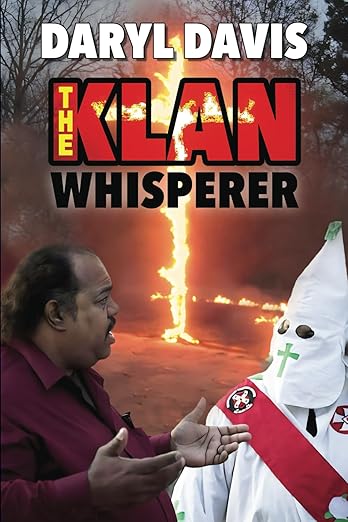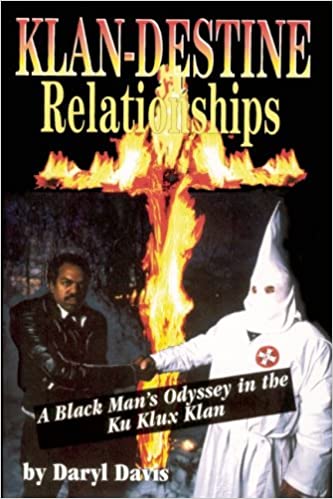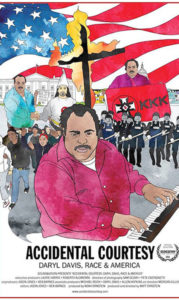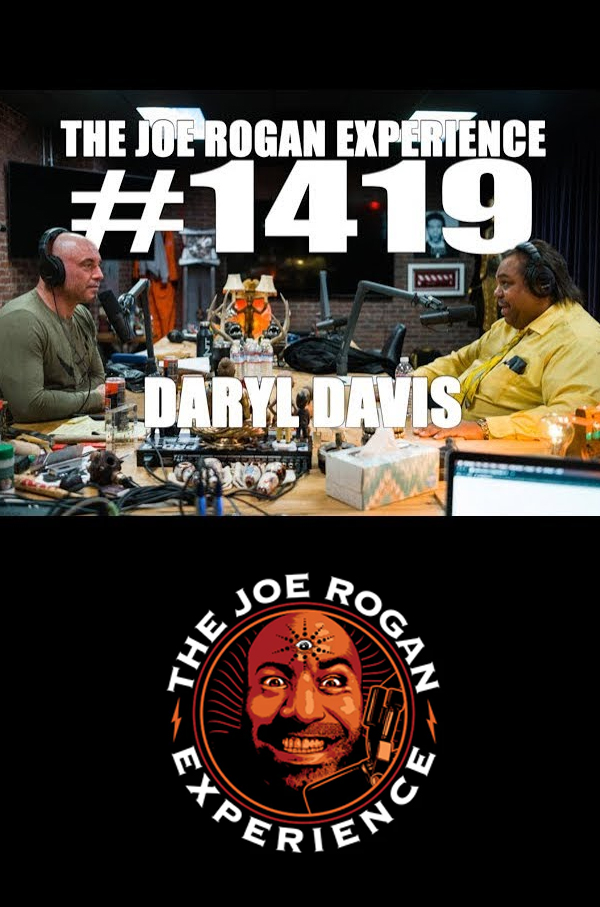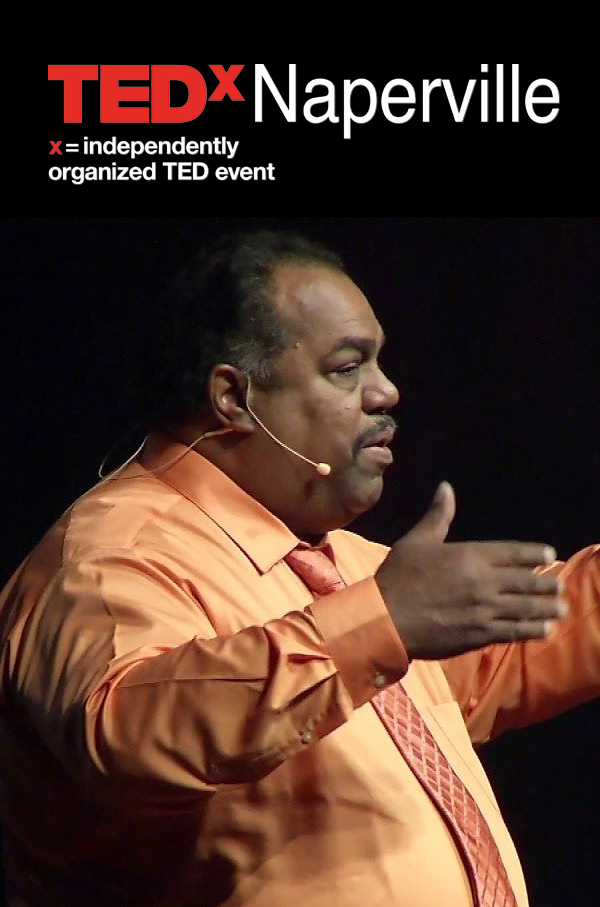Daryl Davis
Renowned Rock/Blues Musician,
Conflict Navigator, Unifier, and Author
Speaks About
- Resolving Conflict
- Active Listening
- Kindness & Civility
- Conversations That Ignite Change
- Building Trust & Collaboration
- Build Bridges — Not Walls
- Empathetic Leadership
- Inspiration
- Putting An End to Hate
- The Power of Music
Daryl in Brief
Renowned Blues Musician – For 32 years played piano for Chuck Berry.
Parents were in U.S. Foreign Service – He grew up living all over the world.
Childhood experience with racism led him on 40-year journey to engage KKK leaders and white supremacists – asking, “How can you hate me when you don’t even know me?”
His conversations had amazing outcomes. Many KKK leaders became true friends, left the Klan, and gave Daryl their robes and hoods.
Author, Klan-destine Relationships and subject of the award-winning documentary Accidental Courtesy.
Daryl empowers people to use conversation to defuse conflict and build bridges – at work, in the community, and with family/friends.
Speaks about: the power of conversation to ignite positive change; understanding hate groups in America; and how Rock and Roll music broke down racial barriers in the 1950s and 1960s.
Daryl Davis is a renowned blues and rock musician who’s toured the world playing with musical legends, including 32 years as Chuck Berry’s piano player. That’s his profession. But Daryl also has a unique obsession: Using civil conversation to ignite positive change with people who hate him because he’s Black – members of the Ku Klux Klan and other White supremacist groups. Encountering racism firsthand at ten years old, Daryl wondered, “How can they hate me when they don’t even know me?” Daryl started meeting his detractors in person over 40 years ago to have a patient conversation about their beliefs. Through active listening and not looking to change their minds, an amazing thing happened: Many conversations led to understanding and genuine friendships. In some cases, KKK leaders disavowed their old beliefs and gave Daryl their robes and hoods. The average person may never face these kinds of extreme conversations, but Daryl empowers people with personal stories and practical ways to build bridges at work, at home, and in their community – one conversation at a time. Daryl’s work is chronicled in his book Klan-Destine Relationships and the documentary Accidental Courtesy. Daryl’s TEDx talk has nearly 13 million views.
Daryl graduated from Howard University with his Bachelor of Music Degree. He also holds an Honorary Doctorate in Humane Letters from Post University for the unique work he has done in the field of race relations. He has performed extensively with Chuck Berry, The Legendary Blues Band (formerly The Muddy Waters Blues Band), and many others. While music is his profession, improving race relations is his obsession. He is known to many as “The Rock’n’Roll Race Reconciliator.”
It started during a break between performances with a band at a bar one night. A man approached Daryl and remarked that this was the first time he had ever seen a Black man play piano like Jerry Lee Lewis. Daryl explained that both he and Lewis were influenced by Black Blues & Boogie-Woogie pianists, from which Rock’n’Roll and Rockabilly evolved. The man did not believe in the Black origin of Daryl’s piano style even after he said that Lewis was a friend who had shared this news with him. The man then shared news with Daryl – he was a member of the Ku Klux Klan.
This meeting, and those that followed, would lead Daryl on a journey all over America, meeting and interviewing leaders and members from KKK, neo-Nazi and Alt-Right groups at both his and their homes as well as their rallies. With his highly acclaimed, nonfiction book, Klan-Destine Relationships, Daryl become the first Black author to write a book on the Klan from in-person interviews. The award-winning documentary, Accidental Courtesy, details his journey and has been shown frequently on PBS. Daryl, who has been to 57 countries on 6 continents, is often selected by the U.S. State Department as a highly respected expert on race relations and conflict, to present programs in various countries around the world dealing with similar situations.
Daryl has been doing this work since 1983 and has become the recipient of numerous Klan robes & hoods and other racist symbols, given to him by people who once hated him when they didn’t even know him. Now many of them have become his friends and supporters of his work. On the other side of spectrum, for his work in bridging race relations he is the recipient of numerous awards such as the American Ethical Union’s prestigious Elliott-Black Award, Carnegie-Mellon’s Carl Sagan Award & Prize, Tribeca Disruption Innovation Award, MLK Award, Search for Common Ground Award, Washington Ethical Society Bridge-Builder Award, among many others. He is often sought for commentary by CNN, MSNBC, ABC News, Newsweek, The Washington Post, The Atlantic, People magazine, and many other media sources.
In Daryl’s words, “Ever since I graduated from college in 1980 with my degree in music, I’ve been a full-time musician, traveling and performing all over America and around the world. What I’ve come to find to be the greatest, most effective, and successful weapon we can use to combat ignorance, racism, hatred, and violence, is also the least expensive weapon – and the one that is least used by Americans. That weapon is called communication. We can communicate with people in space but many of us have difficulty talking to the person who lives next door because of the color of their skin, their ethnicity, their religion, their orientation, their politics, etc. We are living with 21st century technology in Space Age times, but there are still too many of us with Stone Age minds.”
Daryl has come in closer contact with more members of the Ku Klux Klan than most White people, and certainly most Blacks, short of being on the wrong end of a rope. What’s more surprising? He intentionally continues to do so because as he says, “Ignorance breeds fear. If you do not keep that fear in check, that fear will breed hatred. Because we hate those things that frighten us. If you do not keep that hatred in check, that hatred in turn will breed destruction because we want to destroy those things that we hate. Why? Because they frighten us.”
When he speaks, Daryl Davis’s impact on an audience is sobering yet inspirational. More than a few members in every audience remember and ask him about the fictional character in Dave Chappelle’s comedic skit in which he plays a blind Klansman who didn’t know he was Black and attends Klan rallies. Daryl shares stories that would be comical, if he weren’t putting his life on the line for a purpose. Truth is indeed stranger than fiction might ever be in Daryl’s case. People will also point out how courageous Daryl was to actually turn up at Klan rallies himself. Inevitably they bring up Spike Lee’s film BlacKkKlansman. That film depicts a Black police officer who infiltrated the KKK over the telephone and would send a White subordinate officer to Klan rallies in his place to gather damning intelligence against the Klan. The difference is not lost on the audience. Daryl had his feet on the ground in the lion’s den and tells the story first-hand.
Through his work, Daryl has discovered a successful method of transforming enemies into friends. His stories of his encounters with – and transformations of – White supremacists have inspired people all over the U.S. and abroad. His audiences leave his presentations empowered to:
- Overcome Their Fears
- Confront Their Prejudices
- Recognize Similarities
- Appreciate Differences
- Navigate Diversity
- Improve Relationships with Others
- Better Their Lives While Creating a Positive Impact on Others
As an offshoot of his work, Daryl is adjunct professor for Johns Hopkins University’s Osher Lifelong Learning Institute & Community as well as Oasis. Both are autonomous Adult Continuing Education programs that give Daryl the latitude to teach on a variety of subjects he cares about most in the arenas of music and race relations. Daryl is a board member of FAIR (Foundation Against Intolerance & Racism) and is a cofounder, board member, and Global Ambassador of the Prohuman Foundation.
In addition to his career as a performing musician, Daryl is the owner of Lyrad Music, a music publishing and licensing business. He is also an actor of stage and screen and has appeared in HBO’s highly acclaimed series The Wire.
Books and Media
A missed opportunity for dialogue is a missed opportunity for conflict resolution.
Daryl Davis
Speech Descriptions
Accidental Courtesy
Consider enhancing Daryl’s speech with a screening of Accidental Courtesy, the film about his work.
From Discord to Harmony: Transforming Conflict Into Collaboration
Conflict is unavoidable in everyday life – it’s how we react to it that matters. Maybe you’re a manager trying to defuse tension among employees…your co-worker doesn’t share your beliefs or background…or you have a long-simmering disagreement with a family member or neighbor. The one thing all conflict has in common – nothing gets solved until the opposing sides talk about it. In his presentation, Daryl Davis empowers people with a universal tool kit to resolve conflict at work, at home, and in the community – one conversation at a time. The average person may never face the kinds of extreme experiences Daryl has had, but his lessons serve as great examples of the positive change that can happen when people have the courage to listen to one another without trying to change each other’s minds.
What audiences learn:
• Apply universal tools to create positive change wherever conflict or disagreement exists.
• Preparation/Empathy: Understand the other person’s position and reasoning before you engage.
• You needn’t respect what people say but you must respect their right to say it.
• Learn to listen, understand, and keep emotions in check, even in incendiary situations.
• How to recover/repair/strengthen a relationship with a co-worker, client, friend, or family member.
Meeting Hate With Humanity: The Power of Civility and Dialogue
Daryl Davis draws on 40+ years of engaging KKK and far-right White supremacist groups to unpack why hate crimes and rhetoric are on the rise. The daily headlines are troubling, but Daryl reminds audiences hate is learned – and what is learned can be unlearned. He encourages people to engage and educate, not shun and cancel, those with toxic beliefs, and he shows them how. “Ignorance breeds fear, fear breeds hate, and hate breeds destruction. Engaging and finding common ground is the key to defusing fear.” As a musician, Daryl promotes harmony over discord, and believes we can all play a part in making positive change by meeting hate with civility and building bridges instead of walls. “There’s only one race,” he says, “the human race.”
What audiences learn:
• How fear drives hate and engagement overcomes it.
• The key to changing another’s reality through perception.
• Ways to overcome one’s own prejudices, biases, and fears.
• How one person can make a world of positive difference.
• How to navigate a world of ever-growing diversity.
Hail, Hail Rock and Roll — The Ultimate Bridge-Builder
At its inception, Rock ’n’ Roll was called “the devil’s music” among many derogatory names by its detractors. Some cities banned it altogether. Rooted in Black R&B and Blues, its infectious beat led young people in the South to leap over the rope that segregated Whites from Blacks in the audience. The 1957, Chuck Berry lyric, “Hail, hail Rock’n’Roll, deliver me from the days of old,” in his hit song School Days, celebrated the music as a turning point in race relations. Daryl brings that history forward into his own story, using music as a common denominator and proving that musical and racial harmony go hand-in-hand.
What audiences learn:
• How musical inspiration differs from musical appropriation.
• The Elvis conundrum: How he was crowned King of a genre he didn’t create.
• How Country and Blues are the same music, and why society separates them.
• How a Black musical genre improved race relations and elected a Black president.
• Why music is a cultural necessity and not a luxury.
Daryl's Videos
Quotes
A missed opportunity for dialogue is a missed opportunity for conflict resolution.
Daryl Davis
The conversations that challenge us the most also offer the greatest opportunities for growth and change.
Daryl Davis
Understanding doesn’t mean you accept or agree, but that you acknowledge there is a different side to the story.
Daryl Davis
If you spend five minutes with your worst enemy – you will find that you both have something in common.
Daryl Davis
Ignorance breeds fear. If you don’t keep that fear in check, that fear will breed hatred.
Daryl Davis
We all are human beings. We all want the same basic things in life.
Daryl Davis
Resources
Event Planner Tools
• Daryl’s Story
• Daryl’s Testimonials
• Daryl’s Past Speaking Client List
